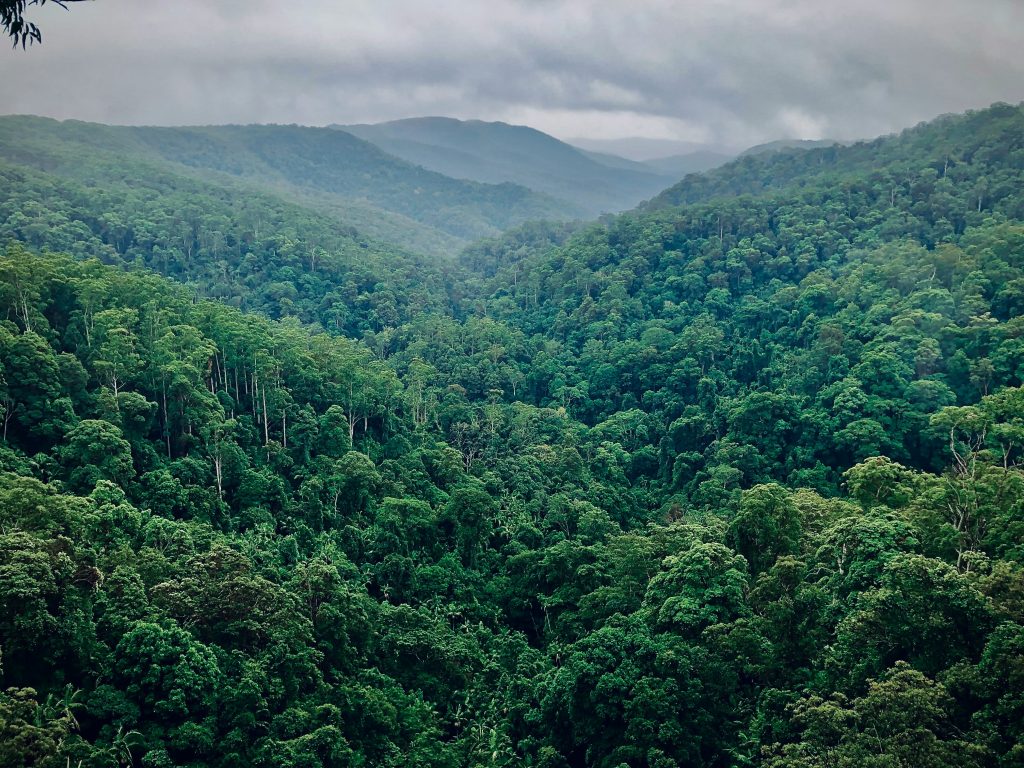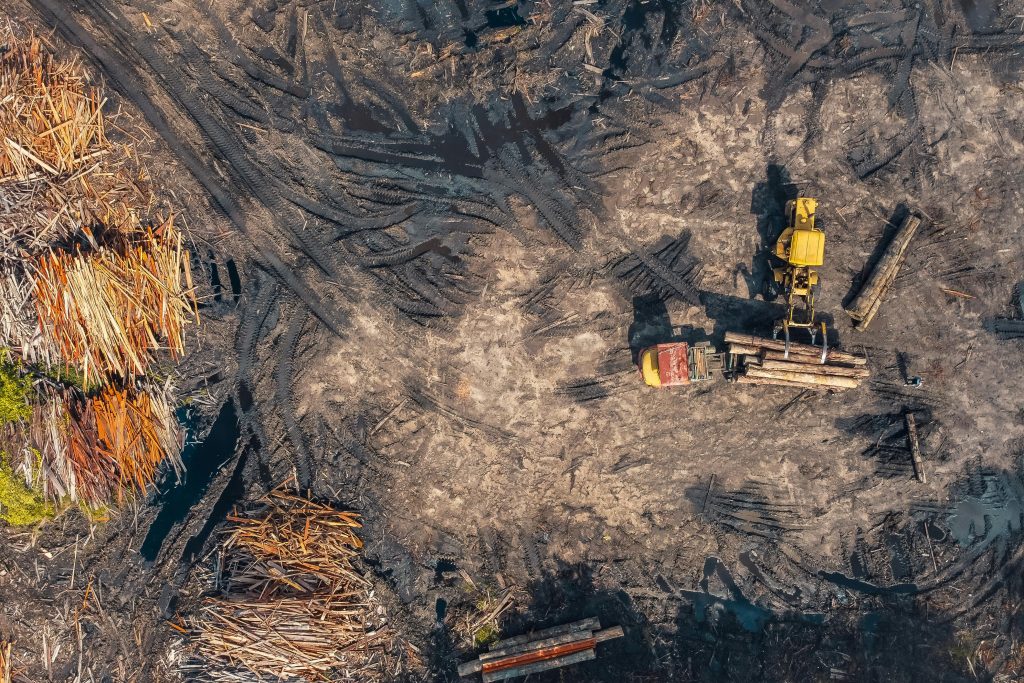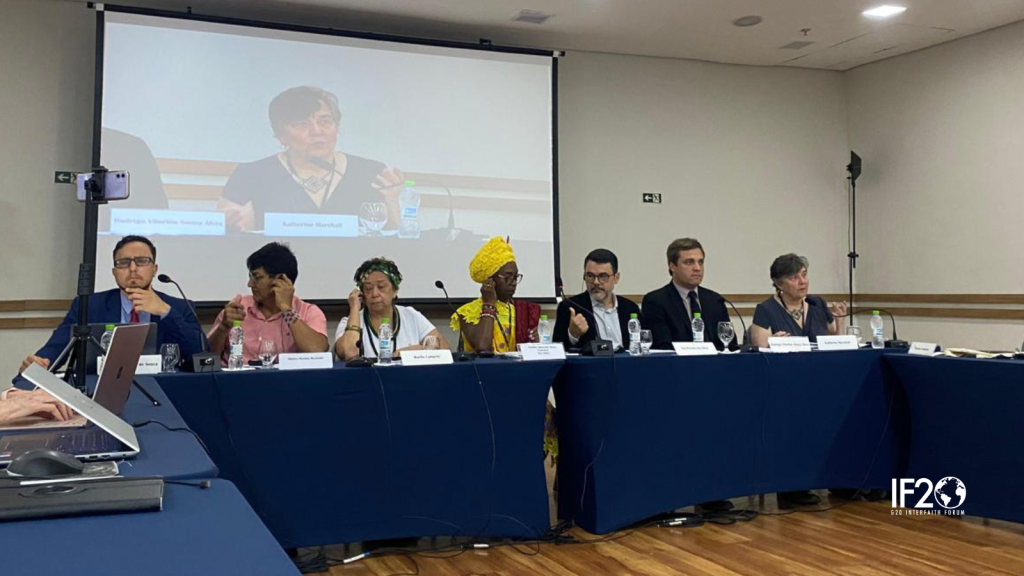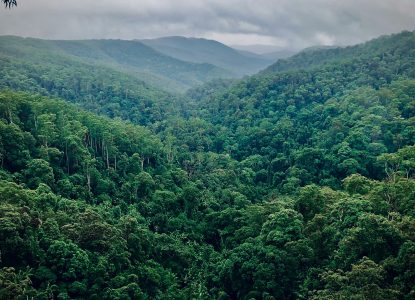By Katherine Marshall, Vice President, G20 Interfaith Association
The following reflections emerge from a series of workshops held in Manaus, Brazil, in June 2024, as part of the G20 Interfaith Forum’s preparations for the upcoming G20 Summit. These discussions brought together religious leaders, environmental experts, policymakers, and representatives from indigenous communities to explore the complex challenges and opportunities for protecting the Amazon rainforest. The workshops aimed to bridge global policy perspectives with local realities, emphasizing the crucial role that religious and spiritual traditions can play in environmental conservation efforts.
– – –
Protecting tropical rainforests is among priorities for action to address the growing threats to the global environment. In Manaus, in the heart of the Amazon rainforest, a series of workshops organized by the G20 Interfaith Forum in June 2024 explored both challenges and opportunities for action. The context was truly global: the coming G20 Summit of global leaders, but the issues emerged as part of daily, very local realities. Yes, the Amazon basin rainforests function as the “lungs of the earth”, whose protection is vital to the very survival of the planet. But the actors involved are real, diverse people with arrays of perceptions that drive their actions.

The discussions were never far removed from the shadows of the existential challenges involved, but were dominated by practical matters, in a rather piecemeal fashion. Analyses of economics, social, scientific matters mingled with observations about political forces and choices. Economics came down to the incentives that drive perceptions of possible actions and countervailing forces. Opportunities and ideas for business abound, but competing forces pursue logging and mining that are clearly known to wreak long term damage to the rainforest. Indigenous communities that claim the Amazon as their home speak both to a protective cosmology that equates nature with motherhood, but also recount social tensions ranging from discrimination in schools to vicious destruction of their communities. And politics drives policy as well as relationships in a polarized environment where collaboration is problematic. Allergies to external pressures and interventions can block efforts to find ways to mobilize resources and to cooperate in the face of destructive pressures.
Religious institutions and beliefs are part of a kaleidoscopic array of forces at work in the Amazon region, as well as beyond, to the global arenas. Core beliefs linked to protection of nature are exemplified by many Indigenous spiritual traditions, but translating them into practice among diverse and fragmented communities is easier in rhetoric than in action. The wide range of Christian and other church leaders in the region also speak to a theology of conservation and care for the planet but they too are subject to divided political allegiances and to financial and economic forces that tend to divide more than to unite. At the national and global levels, growing concerns about the welfare of rainforests and the planet mobilize alliances of religious leaders who press for action and commitment of resources. But despite notable leadership from leading figures like Pope Francis and the Patriarch of Constantinople, Bartholomeo, religious leadership is often divided and seems so far to lack the force to shift the debate towards stronger commitments to action.
Alongside insights about the links between global and local forces at work on the environment, the Manaus discussions highlighted three themes. Ethical arguments and powerful stories and images are a vital path towards inducing disparate forces to come together and move in a common direction. Few can walk this path with the trust and gifts that many religious actors bring, and thus engaging their assets needs to be a central part of strategies and action plans. Second, morality alone won’t solve the problem so the religious voices need to be well integrated in the real landscape of economics, society, and politics. And third, these are wicked problems that demand new creative thought, alliances, and action. One place to start is to focus more proactively on defining how to engage religious forces in the challenges of rainforest protection.
The term “wicked problems” describes today’s environmental challenges well, including the challenge of religious engagement. Wicked problems are characterized by intricate interconnections and blurry or contradictory boundaries. Clear, nicely packaged solutions are elusive. The problem itself can be hard to define and responsibility for leadership diffuse. Creative, collaborative, and dynamic approaches are called for.

Following the theme that religious institutions need to be central actors in addressing the wicked problems, significant questions arise that need to be addressed. If religious communities involve a large majority of the world’s population in some fashion, with a vital mandate of building values and promoting positive behavior, why do the communities fall so far short? With religious diversity and dynamism, how best to encourage positive momentum without being trapped by negative and extreme tendencies? In a global governance structure that is notably weak on positive engagement of religious communities, how to solve the wicked problem of building on the substantive interconnections among sectors and problems with fragmented and fissiparous institutions? And finally, though many nod and agree that common values and the ethical drive towards a common good are tied in many ways to religious teachings, they still ask what religion is, anyway, and in what ways can “it” truly contribute to public policy? These are all plausible questions but there are robust answers to each of them.
In arguing for a religious “voice” on policy matters, a common observation is that “if you are not at the table you end up on the menu.” But that opens many questions about the content of the menus. the kinds of decision-making tables that might be involved., and who from religious institutions might productively engage at them.
An ongoing program, the Interfaith Rainforest Initiative, offers some answers to these challenge. It focuses on the world’s three largest tropical rainforest regions (including the Amazon), pioneering approaches that engage diverse religious actors across world regions. A first step is knowledge and information so that religious leaders are aware of scientific facts but also the economic and political issues involved. They can then engage with communities at many levels, from individual behavior (setting targets for example) to advocacy for national and transnational action (for example curtailing mining and forest cutting, design of Adaptation programs and pressing for sustainable energy transitional measures). The communication capacities of religious leaders and communities represent a powerful asset, as does modeling of changes in behavior.

Concern and frustrations tended to dominate the Manaus discussions, underscoring the wicked nature of problems, their complex intersections, and the weighty roles of political divisions and tensions. They also, however, pointed the way towards actions that can be both inspirational and practical, that engage the global and the local. Putting faces on the Amazon actors: the groups and individuals affected by daily realities and whose lives are central to any policy has enormous potential impact. There are countless articles, films, virtual reality images that make a case for bold action to protect the Amazon rainforests, but engaging people directly has special power. And while some problems can seem intractable: for example the near impossibility of regulating actions in vast regions or eliminating prejudice by decree, there are well tested, known solutions, starting with education and the potential mobilization of religious communities, working together.
– – –
Professor Katherine Marshall is a senior fellow at the Berkley Center for Religion, Peace, and World Affairs at Georgetown University. She serves as the vice president of the G20 Interfaith Association and executive director of the World Faiths Development Dialogue, and worked at the World Bank from 1971 to 2006, tackling development issues in the world’s poorest countries.


